Colorado Criminal Law – Supreme Court Ends Unlawful Drug Dog Sniff Searches
By H. Michael Steinberg Colorado Criminal Defense Lawyer

_________________________
Colorado Criminal Law – Supreme Court Ends Unlawful Drug Dog Sniff Searches
Colorado Criminal Law – Supreme Court Ends Unlawful Drug Dog Sniff Searches – It was common practice in Colorado for the police to walk drug sniffing dogs to places where the police had a right to be – such as your front door. In Florida v. Jardines the United States Supreme Court put an end to that practice.
In the Jardines case – The police received a tip that Jardines was growing marijuana in his home. The police walked a drug sniffing dog right up to the Jardine’s front door, the dog alerted to the presence of drugs (marijuana), and using the alert as probable cause to obtain a search warrant, the police located the grow.
Mr. Jardines filed a motion to suppress the evidence arguing that the dog sniff was a search of the most private of property, one’s home, and the United States Supreme Court, after several appeals, agreed with him.
If a search is conducted illegally, as a general rule, the evidence located and seized during that search is called the “fruit of the poisonous tree” and that fruit, that evidence, cannot later be admitted against the accused at a trial to prove criminal charges related to that evidence. Here the drug dog’s sniff was an impermissible search under the Fourth Amendment and therefore all subsequent evidence was fruit of the poisonous tree.
Therefore the Jardines case created a new and important rule in “dog sniff” cases. A dog sniff at the front door of a citizen or, by analogy, at any point of a person’s home, by a trained narcotics detection dog, is a Fourth Amendment search requiring probable cause…
Understanding The Fourth Amendment and The Special Nature of the Home As Private Property
Historically, the home is considered sacrosanct. People have a “heightened expectation of privacy” in and around their homes. Law enforcement cannot violate that expectation of privacy except under very limited circumstances.
As regards the Fourth Amendment’s protection against illegal searches and seizures, the home is “first among equals”. The Amendment’s “very core” protects a person’s “right…to retreat into his own home and there be free from unreasonable governmental intrusion.”
The Fourth Amendment provides:
…the “right of the people to be secure in their persons, houses, papers, and effects, against unreasonable searches and seizures, shall not be violated.”
The Jardines Court said this:
When “the Government obtains information by physically intruding” on persons, houses, papers, or effects, “a ‘search’ within the original meaning of the Fourth Amendment” has “undoubtedly occurred.” property rights “are not the sole measure of Fourth Amendment violations,”
The Front Porch of a Home Is a Part of the “Curtilage” of That Home
The history behind many of our laws helps us understand the meaning of certain of our historic rights. These rights often emerge from somewhat ancient concepts of English common law. Under these critically important principles, the area immediately surrounding and associated with a home is called the “curtilage of the house” … which area is considered as private and as exclusive to the privacy of the occupants as the interior of the home itself.
This area, the curtilage, of a home is “intimately linked to the home, both physically and psychologically,” and is where “privacy expectations are most heightened.”
If the police physically enter and occupy the area to gather information without the explicitly or implicitly permissions of the homeowner or occupant, the United States Supreme Court has now said, in the absence of a search warrant, such gathering of evidence is an illegal search.
“This right would be of little practical value if the State’s agents could stand in a home’s porch or side garden and trawl for evidence with impunity; the right to retreat would be significantly diminished if the police could enter a man’s property to observe his repose from just outside the front window.”
[O]ur law holds the property of every man so sacred, that no man can set his foot upon his neighbour’s close without his leave.”
The Ruling – The Dog Sniff Is A SEARCH Within The Meaning Of The Fourth Amendment
The police have the same right as any other citizen to approach and knock on a person’s front door. That is, there is an implicit “license” that allows Girl Scouts and Trick Or Treaters and the police to enter that space.
However, after Jardines, the police cannot approach that front door with a trained police dog to explore the area around the home attempting to gather incriminating evidence. That “license” that belongs to us all by virtue of the right to “knock and talk” does not include an invitation to a canine forensic investigation.
The “scope” of the invitation that applies to the area around our homes, such as the front porch, limits the right of the police to conduct, without a much greater license such as the use of a search warrant, to exceed the “common” license given all persons approaching that home. Thus, after the ruling in the Jardines case, police officers, without a search warrant justifying their forensic investigations, (or in the absence of another exception to the mandates of the Fourth Amendment), will be conducting an unlawful search in violation of the Fourth Amendment.
Summary and Conclusion – Other Fact Patterns
A traditional tool used to canvas homes in an attempt to locate a suspect or to gather incriminating evidence is called the “Knock and Talk.” After Jardines, police conducting such investigative procedures will now be more aware of the limitations of that technique.
When the police conduct “knock and talks,” Courts after this decision, will look much more closely at the conduct of law enforcement when they occupy the space of the “curtilage.” One thing is for sure, the decision to stay on a person’s property without the express permission of the occupant of that home and to utilize “investigative tools” such as drug dogs,will mean any evidence gathered using that procedure – in the absence of a search warrant – should bel suppressed by the Trial Court after the Jardines case.
Colorado Criminal Law – Supreme Court Ends Unlawful Drug Dog Sniff Searches
If you found any of the information I have provided on this web page article helpful please click my Plus+1 or the Share buttons below so that others may also find it.
Never stop fighting – never stop believing in yourself and your right to due process of law.
ABOUT THE AUTHOR: H. Michael Steinberg – Email The Author at [email protected] – A Denver Colorado Criminal Defense Lawyer – or call his office at 303-627-7777 during business hours – or call his cell if you cannot wait and need his immediate assistance – 720-220-2277. Attorney H. Michael Steinberg is passionate about criminal defense. His extensive knowledge and experience of Colorado Criminal Law gives him the edge you need to properly handle your case.
 You should be careful to make a responsible choice in selecting a Colorado Criminal Defense Lawyer – and we encourage you to “vet” our firm. Over the last 40 plus years – by focusing ONLY on Colorado criminal law – H. Michael has had the necessary time to commit to the task of constantly updating himself on nearly every area of criminal law, to include Colorado criminal law and procedure and trial and courtroom practice. H. Michael works hard to get his clients the best possible results in and out of the courtroom. He has written, and continues to write, extensively on Colorado criminal law and he hopes this article helps you in some small way – Colorado Criminal Law – Supreme Court Ends Unlawful Drug Dog Sniff Searches.
You should be careful to make a responsible choice in selecting a Colorado Criminal Defense Lawyer – and we encourage you to “vet” our firm. Over the last 40 plus years – by focusing ONLY on Colorado criminal law – H. Michael has had the necessary time to commit to the task of constantly updating himself on nearly every area of criminal law, to include Colorado criminal law and procedure and trial and courtroom practice. H. Michael works hard to get his clients the best possible results in and out of the courtroom. He has written, and continues to write, extensively on Colorado criminal law and he hopes this article helps you in some small way – Colorado Criminal Law – Supreme Court Ends Unlawful Drug Dog Sniff Searches.

Category: Blog, Dog Sniff Searches, Fourth Amendment Searches and Seizures | Tags: Dog Sniff Searches In Colorado Comments Off on Colorado Criminal Law – Supreme Court Ends Unlawful Drug Dog Sniff Searches





























